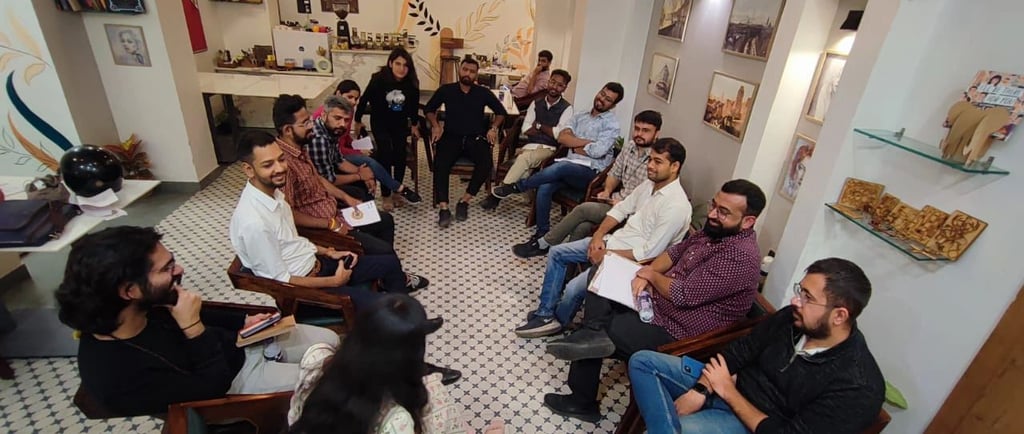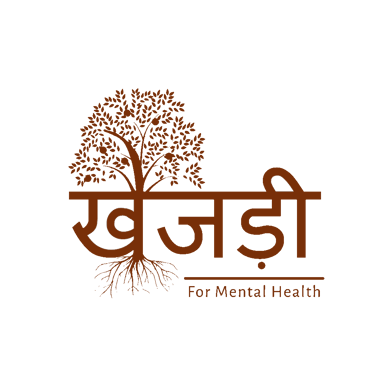57th Mental Health Chaupal: Navigating Work, Personal Life & Boundaries
In our 57th Mental Health Chaupal at Cafe Dante, organized by Khejdi For Mental Health in collaboration with Aatman Foundation, we explored the balance between long working hours, work demands, personal life, and setting boundaries for well-being. The discussion began with the participants sharing the perspectives of several industrialists expressing on the necessity of long working hours to remain competitive in the global market. This sparked a conversation about the fine line between work and personal life and the need to establish healthy boundaries. The participants also contemplated the motivations behind people's work choices, recognizing that work serves as a means to build their lives. Therefore, while work is important, it's equally crucial to reserve time for one's personal life. Some individuals shared their experiences of working extra hours, driven by specific goals; for instance, freelancers may take on multiple projects to reach their desired income targets. However, others might find themselves compelled to overwork due to the fear of job insecurity. The conversation extended to the significance of fair compensation for hard work, questioning why a system exists where employee efforts predominantly benefit owners and top management while the workforce faces financial and emotional challenges. We discussed how societal conditioning can lead to people tying their self-worth to professional success, sometimes neglecting personal needs. Participants stressed the need to balance work and life & redefine productivity beyond mere hours worked. We also discussed the importance of protective systems and labor law awareness to prevent exploitation. Participants stressed the need for companies to provide support & protective measures, including transportation & safe accommodations for employees with extended work hours. Acknowledging that regressive work policies exist in some corporate environments, the participants stressed the importance of finding indigenous approaches to work and productivity, rather than blindly following Western models. The group also recognized that our employment has broader implications, extending beyond the personal sphere into the political arena. It affects not only an individual's life but also those in their immediate vicinity, the organization they work for, & even the nation as a whole. The discussion delved into the interconnected nature of work and job opportunities, which can trigger various consequences, such as migration patterns and, in the long run, contribute to global warming. A key takeaway was that discussions around working hours should be objective, considering productivity rather than being clouded by emotional factors like nationalism or pride. The discussion concluded by emphasizing the need for a nation's development to align with its unique context, advocating for a holistic approach that prioritizes emotional, physical, social, and environmental well-being alongside economic growth.


